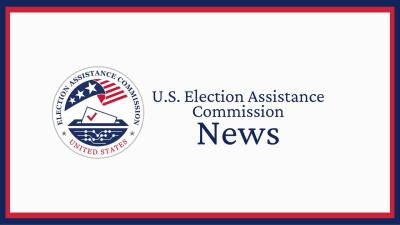
WASHINGTON, D.C.— On Tuesday, November 15, the U.S. Election Assistance Commission (EAC) Commissioners unanimously voted during a public hearing to accredit SLI Compliance Compliance as the first Voting System Testing Lab (VSTL) able to test voting systems to the Voluntary Voting System Guidelines (VVSG) 2.0. The VVSG are a set of specifications and requirements against which voting systems can be tested to determine if the systems meet baseline standards. This accreditation follows SLI Compliance’s successful completion of independent assessments by both the EAC and the National Institute of Standards and Technology’s National Voluntary Laboratory Accreditation Program.
EAC Chairman Thomas Hicks, Vice Chair Christy McCormick, Commissioner Ben Hovland, and Commissioner Donald Palmer issued the following joint statement: “The accreditation of SLI Compliance for VVSG 2.0 testing formally creates a certification path for the next generation of more secure, auditable, and accessible voting systems for elections in the United States. This is a major step and the EAC is dedicated to ensuring the agency’s work with VSTLs, manufacturers, and the voting systems submitted to our program is transparent. Feedback from stakeholders will help continue to improve the VVSG and the EAC’s testing and certification process.”
Accreditation of a VSTL to test systems against VVSG 2.0 means the EAC is now prepared to accept applications to test and certify equipment to the new standard. Modifications to systems certified to VVSG 1.0 will continue to be accepted through November 15, 2023. At that point, the EAC will no longer accept submissions to test VVSG 1.0 and 1.1 with the exception of limited maintenance modifications, for systems certified to the legacy standards. These modifications include:
· Security updates - Software patches or hardware mitigations to address known security vulnerabilities and exploits.
· Bug fixes to correct reported anomalies.
· Replacements of Commercial off the Shelf components due to end-of-life.
· Jurisdictional rule changes requiring new functionality.
· Updating or adding components compliant with VVSG 2.0.
Additionally, all voting systems submitted to the EAC going forward will undergo penetration testing.
A recording of the November 15 public hearing, which also included updates on the EAC and a discussion of initial lessons learned from the 2022 election cycle, can be found on the EAC’s YouTube channel.

